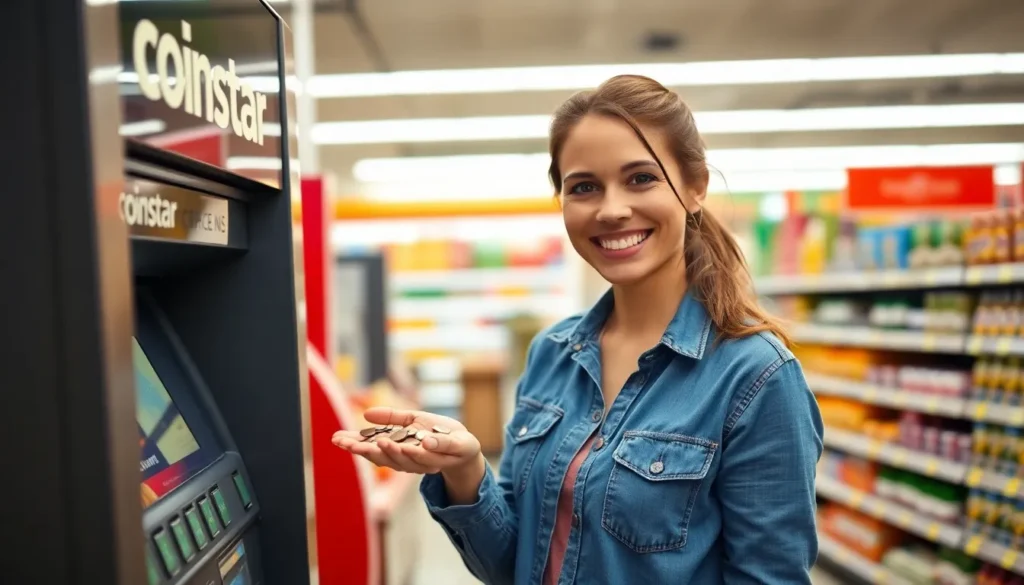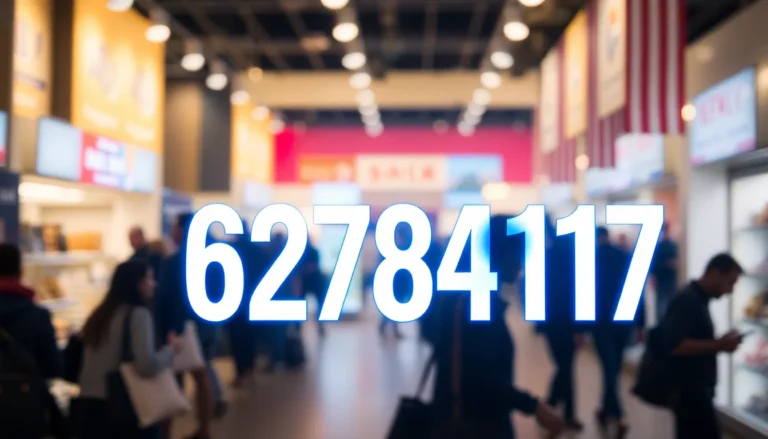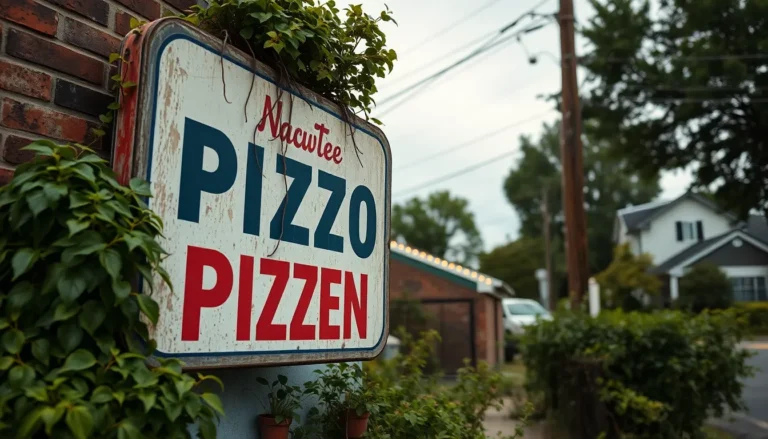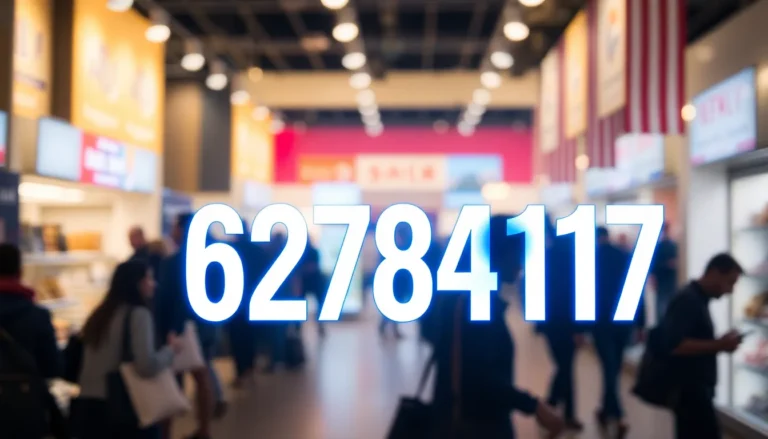Table of Contents
ToggleCoins can pile up quickly, turning into a heavy burden in pockets or jars. Many people find themselves wondering where to convert that spare change into cash. Whether it’s to declutter or to use the money for something special, knowing the right places to exchange coins is essential.
From banks to coin-counting kiosks, various options are available for turning coins into cash. Each method has its pros and cons, and understanding these can help make the process smooth and efficient. This guide will explore the best locations to change coins to cash, ensuring that everyone can find a convenient solution to their coin conundrum.
Overview of Coin Conversion
Coin conversion provides several straightforward options for exchanging spare change into cash. Understanding these options and their associated benefits and drawbacks is essential for efficient money management.
Banks
Banks typically accept coins for conversion. Customers can visit their local branch and request to exchange coins for cash. Most banks offer this service for account holders without charge. However, some banks impose limits on the number of coins accepted or require customers to roll coins before acceptance.
Coin-Counting Kiosks
Coin-counting kiosks, such as Coinstar, feature convenient locations in grocery stores and retail outlets. These machines count coins and provide cash or vouchers in return. Users benefit from instant cash availability. However, these services often charge fees ranging from 8% to 12% of the total amount.
Local Currency Exchanges
Many cities feature local currency exchange businesses that accept coins. These exchanges may offer competitive rates and low fees, making them a viable option. Customers should compare rates with other methods to ensure optimal value.
Retail Stores
Some retail stores, especially large chains, will exchange coins for cash when requested by customers. Policies vary by store, and some may have restrictions on daily limits or require purchases. Checking with individual stores can clarify their specific coin exchange policies.
| Method | Fees | Convenience | Account Requirement |
|---|---|---|---|
| Banks | Usually free | Limited hours | Required for most banks |
| Coin-counting kiosks | 8% to 12% | High | Not required |
| Local currency exchanges | Varies | Moderate | Not usually required |
| Retail stores | Varies | High | Not usually required |
Exploring these options enables individuals to convert coins into cash effectively, ensuring accessibility and ease of use while identifying the best approach based on personal needs.
Local Coin-Counting Machines
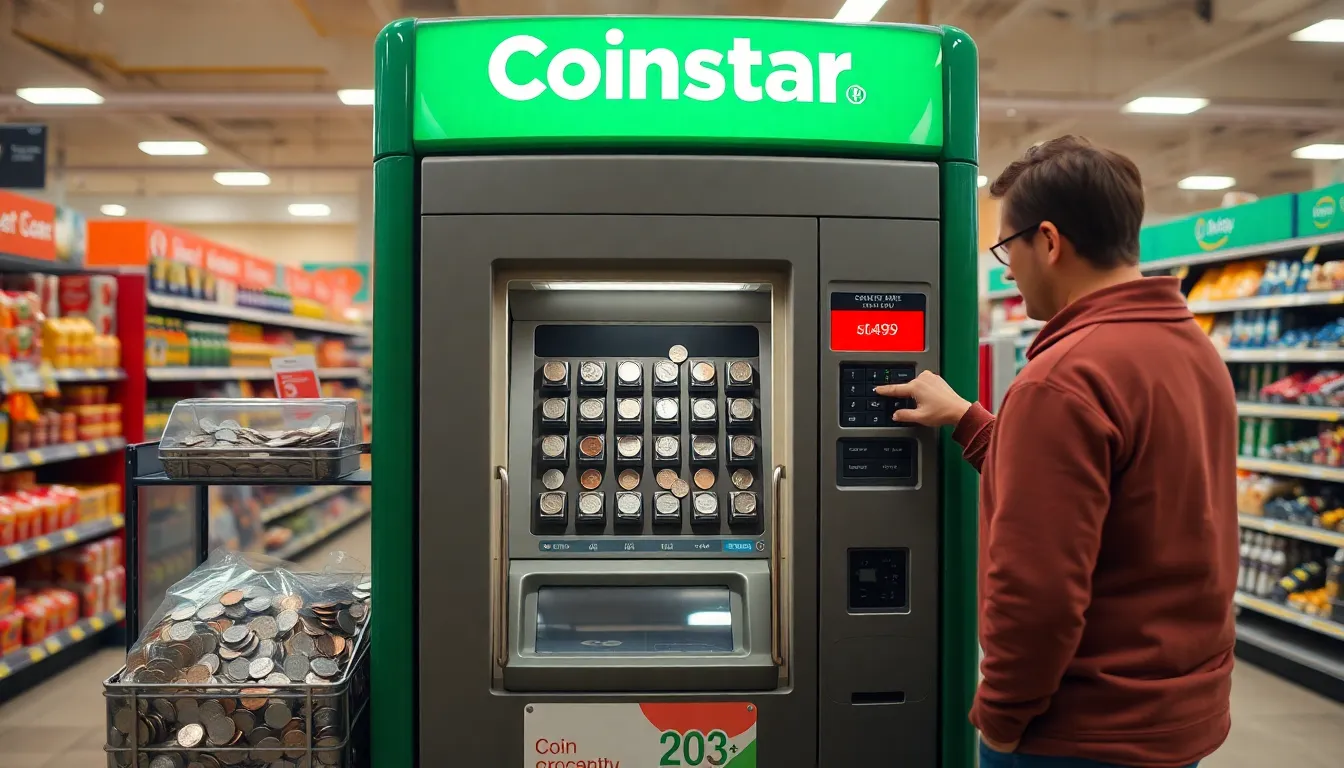
Local coin-counting machines provide a convenient option for converting coins into cash. These machines often offer quick service and immediate payouts.
Popular Locations
Popular locations for coin-counting machines include grocery stores, pharmacies, and retail chains. Notable examples include:
- Coinstar: Found in many supermarkets and shops, Coinstar machines are well-known for converting coins into cash or gift cards.
- Walmart: Some Walmart locations feature self-service kiosks for coin counting.
- Safeway: This grocery chain offers Coinstar machines at select locations.
These locations make coin conversion accessible, allowing users to easily find a machine nearby.
Fees and Limitations
Most coin-counting machines charge fees for their services. Common fees range from 8% to 12% of the total coin value. Machine access may also present limitations:
- Minimum and Maximum Amounts: Many machines enforce minimum coin amounts and may have caps on the maximum.
- Types of Coins: Some machines might not accept certain foreign coins or damaged currency.
Users should check each machine’s guidelines before using the service to avoid unexpected charges and restrictions.
Banks and Credit Unions
Banks and credit unions provide options for converting coins into cash. They often cater to account holders but also offer services to non-members at times.
Services Offered
Banks typically accept coins for conversion, sometimes without charge for their account holders. They may require customers to roll their coins beforehand, depending on the institution’s policies. Many banks offer coin-counting machines on-site for added convenience, allowing users to avoid rolling altogether. Credit unions often provide similar services, with slight variations based on individual credit union policies.
Pros and Cons
Pros:
- Cost-effective: Many banks and credit unions provide free services to account holders.
- Convenience: Locations are often easily accessible in communities.
- Instant access: Users can receive cash immediately after conversion at many branches.
- Restrictions: Some banks impose limits on the amount of coinage accepted or require coins to be rolled.
- Non-member fees: Non-account holders may incur fees, impacting the overall cost-effectiveness.
- Availability: Not all banks or credit unions maintain coin-counting machines.
Coin Exchange Kiosks
Coin exchange kiosks provide a user-friendly solution for converting coins into cash. These self-service machines simplify the process, allowing individuals to quickly obtain cash for their loose change.
How They Work
Kiosks, like Coinstar, operate through an automated process. Users insert coins into the machine, which counts and sorts the coins. After the counting is complete, users receive a voucher redeemable for cash at the kiosk. Some kiosks may offer options for digital transfers or gift cards instead of cash, depending on the user’s preference. It’s important to confirm the specific operation details before use, as this can vary by machine.
Advantages Over Traditional Methods
Coin exchange kiosks present several advantages over traditional conversion methods, including:
- Speed: Kiosks typically provide instant cash without the need for appointment scheduling or lengthy waiting times.
- Accessibility: Kiosks are commonly located in grocery stores and retail outlets, making them convenient for consumers.
- Simplicity: No need for users to roll coins or engage in complicated processes, as kiosks handle it all on-site.
- Less Restrictive: Some kiosks do not impose strict limits on coin deposits, making them a viable option for users with large amounts of change.
- Quick Cash: Users access cash immediately after the transaction, eliminating delays associated with banks and credit unions.
These factors often make coin exchange kiosks a preferred method for many people looking to convert spare change into cash efficiently.
Online Services and Apps
Online services and apps offer a convenient way to convert coins to cash without leaving home. Users can leverage technology to manage spare change efficiently.
Process and Convenience
Users can download apps like Coinstar and Acorns to convert coins without much hassle. These platforms often provide straightforward processes for exchanging coins. Users simply input their coin amounts, and the app calculates a total value. Transactions can happen quickly, allowing for quick access to funds or the option to transfer money to bank accounts. Many apps also allow users to pick up cash at designated locations, adding to the accessibility. Options for shipping coins directly to companies for conversion are also available, though they may include waiting periods for processing.
Potential Risks
Potential risks include app fees and fluctuating exchange rates. Some apps may charge users service fees, reducing the total cash received. Additionally, delays can occur with some services, limiting immediate access to funds, which might hinder urgent cash needs. Users must also verify the app’s legitimacy to avoid scams. Ensuring the security of personal information is crucial when engaging with financial apps.
Finding the right place to exchange coins for cash can simplify the process of decluttering and provide immediate funds. Whether opting for banks and credit unions that may offer free services or using convenient coin-counting kiosks, each method has its unique benefits and drawbacks. Local currency exchanges and retail stores can also serve as viable options, depending on individual circumstances.
For those seeking a more modern approach, online services and apps provide a flexible solution that fits into busy lifestyles. By understanding the available options and their specific features, individuals can make informed decisions that best suit their needs. Transforming spare change into cash is more accessible than ever, allowing for both practical financial management and the chance to treat oneself.

